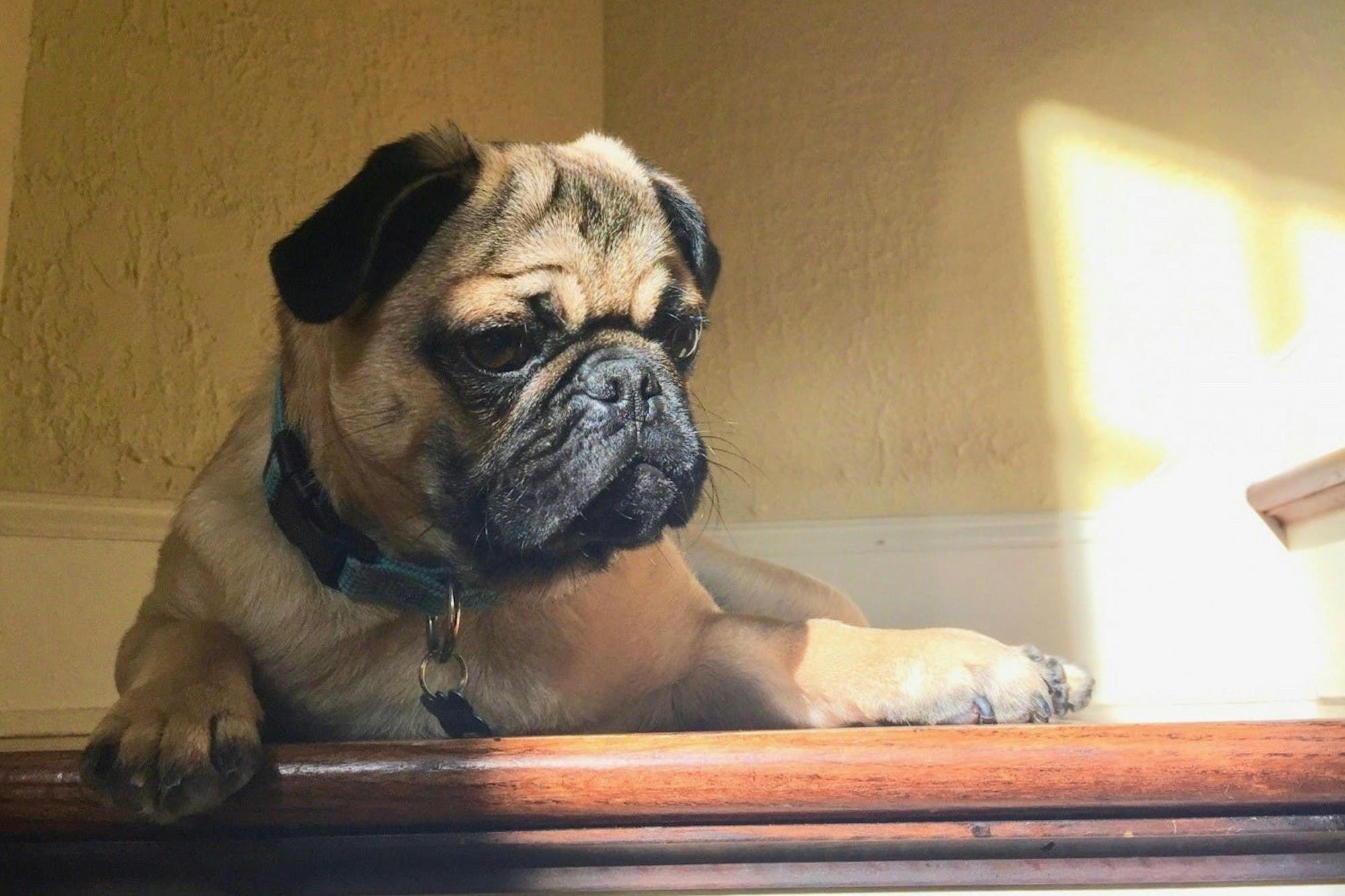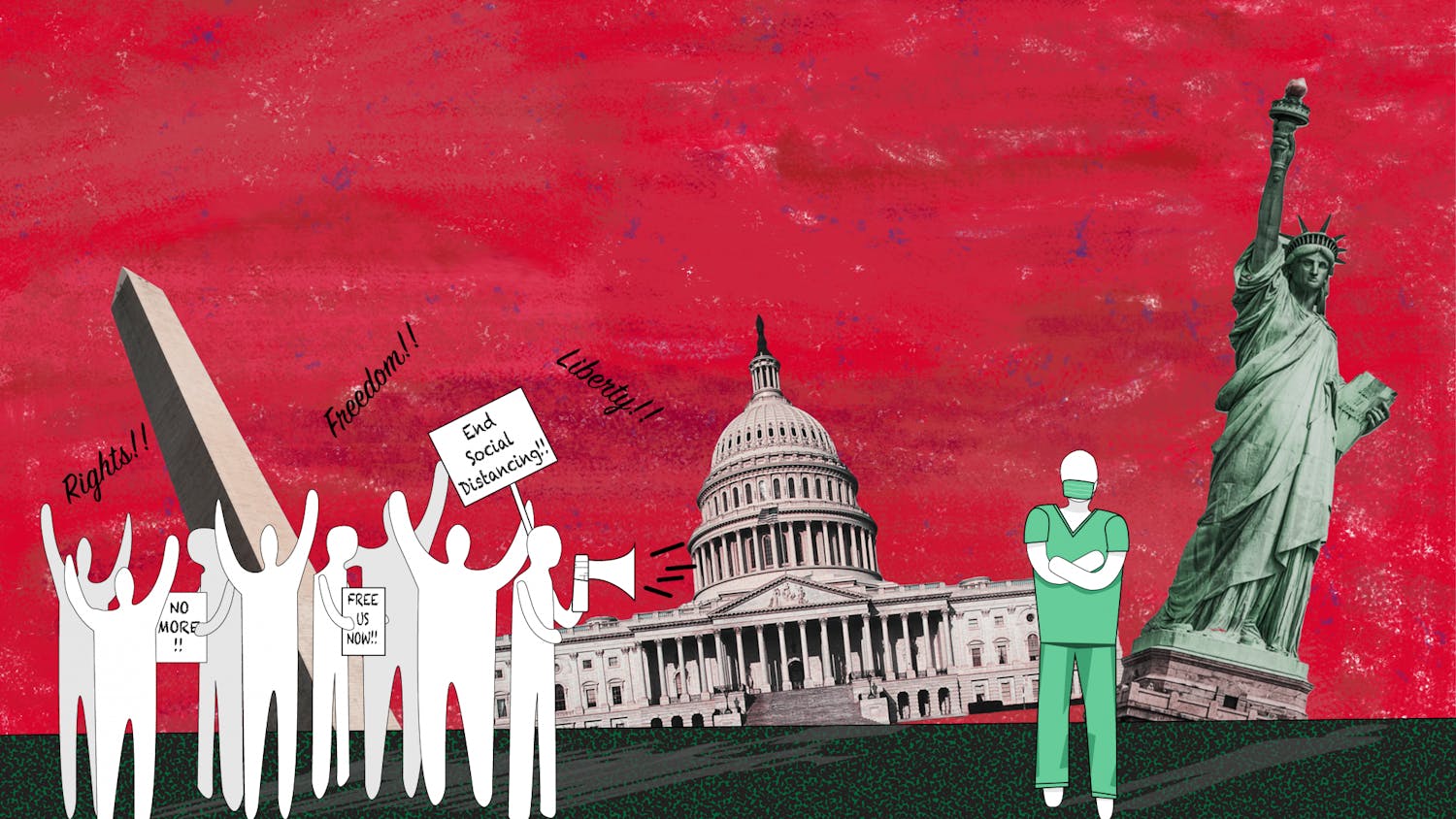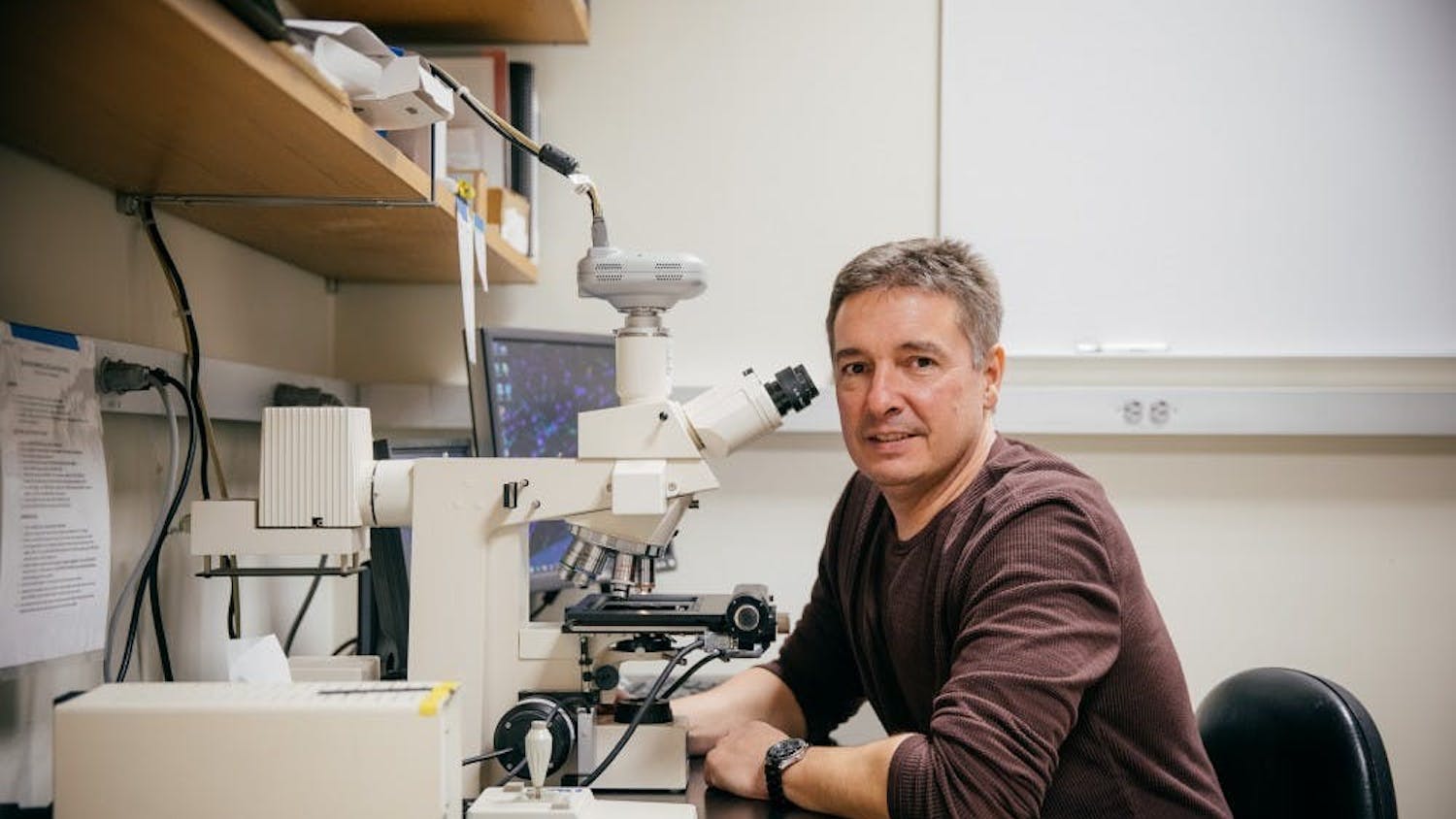It seems that even man’s best friend can’t escape the pandemic.
Winston the pug, owned by Ben McLean ’22 and his family, tested positive for COVID-19 on April 24, making him the first dog in the U.S. to test positive for the coronavirus.
The McLeans, who live in Chapel Hill, N.C., discovered Winston was sick when the family was tested for COVID-19 as part of a Duke University research study, named the Molecular and Epidemiological Study of Suspected Infection.
In a press statement, principal investigator for the MESSI research study Chris Woods said that this is the first instance in which the same virus that causes COVID-19 in humans has been detected in a dog.
Since receiving Winston’s test results, the McLeans have been overwhelmed with the overnight fame of their four-legged companion.
“If you have a pug with a large tongue that has tested positive for COVID, it is a media frenzy,” Ben McLean’s father Samuel McLean ’90 said. “He was on the Today Show, Good Morning America, NBC News, New York Times, CNN, Fox News — it’s just been bananas.”
“It’s been a lot,” Ben McLean said. “We’re very tired.”
The Duke study in which the McLeans are participating aims to understand the course of COVID-19 in individuals, as well as the timeline of the immune system’s response, according to Samuel McLean, a professor at University of North Carolina Chapel Hill School of Medicine and attending physician in the school’s department of emergency medicine.
The study is structured longitudinally — it repeatedly tests the same participants over time — and participants have their blood drawn and oral and nasal swabs collected weekly. Participants’ pets were also tested to determine whether animals can be carriers of the COVID-19.
The researchers came to the McLeans’ home on April 1 to collect blood samples and nasal and oral swabs from the family, as well as oral swabs from the family’s two dogs and cat, Ben McLean said.
Ben McLean tested positive for COVID-19, as did his mother, father and dog Winston. His 17-year-old sister, other dog Otis and cat Mr. Nibs all tested negative. The fourth family pet — a lizard named Kimchi — was not tested.

The McLean family pugs, Winston and Otis.
Samuel McLean said that he first began exhibiting symptoms around March 14, most likely due to exposure during his emergency room work. He added that his wife Heather McLean, a pediatrician at Duke Children's Hospital and Health Center, began exhibiting symptoms soon after. Within a few days, Ben McLean also began to show symptoms.
Samuel McLean said that around the same time he came down with the virus, he noticed that Winston had developed a “weird” cough and wasn’t eating. Winston was the only one of the McLean’s pets who seemed to be exhibiting coronavirus symptoms.
Fortunately, Winston made a full recovery in a matter of days.
“One morning, he came down, ate all of his food and was running around, ready to go on his walk,” Samuel McLean said. “I knew Winston was back.”
The whole family was fortunate to have all had mild cases of coronavirus, according to Samuel McLean.
He explained that Winston’s close contact with the family and large tongue had most likely contributed to him falling ill.
“Winston has a giant tongue, which creates huge vulnerability,” Samuel McLean said. “If he just walked through a room, a virus could just float down and land on his tongue.”
Director of the Shelter Medicine Program at the University of Wisconsin-Madison Sandra Newbury, who has been conducting research on how COVID-19 impacts animals, stressed that the news is no reason to panic.
“We really don’t want people to freak out in general,” Newbury said. “In fact, it looks like dogs are not very good hosts for the virus … Most dogs that have tested positive have been asymptomatic.”
According to Newbury, COVID-19 is primarily a human-to-human disease. While recent headlines have featured a “small handful” of dogs and cats, as well as a lion, tiger and mink who came down with coronavirus, it is unlikely that animals play a role in transmission to humans.
Both Newbury and the family said that they doubt Winston was the first dog in the United States to have COVID-19.
“He is certainly the first dog to test positive, but whether he’s the first dog who was infected — I don’t think we’ll ever really know that because testing wasn’t allowed,” Newbury said.
Samuel McLean added that many people had pet Winston throughout the month, and no one that they know of has gotten infected from him.
Some question the ethics of testing animals in light of shortages in human testing kits, Newbury said. However, according to Newbury, her research has developed testing for animals that does not use the same reagents as those used in human COVID-19 testing kits, reducing the strain on human testing kit resources.
Newbury said that her team emphasizes that if a pet is sick with COVID-19, it is mostly likely because the owners themselves first had the coronavirus. Newbury worked with the Centers for Disease Control and Prevention on recommendations for handling infected or exposed animals.
“The key points that we’re trying to have people recognize is that if you’re sick, you should stay away from your dog in the same ways that you stay away from other members of your family,” Newbury said. “When you’re making a plan for social distancing, ideally you would include your pet in that plan.”
While just a handful of animals have tested positive in the U.S., Newbury said that there are recommendations in place for veterinary clinics and shelters handling animals infected with COVID-19.
Orange County Animal Services spokesperson Tenille Fox said that the Orange County health department is “slammed” working to put out correct information to the public. According to Fox, OCAS has transitioned to appointment-based services in accordance with social distancing recommendations. They’re recommending that pet owners in the area who have tested positive for COVID-19 try to avoid direct contact with pets and follow social distancing protocol, Fox said.
“No petting, no snuggling, no sharing food, kissing, things like that,” Fox said. “Which for this pug, it sounds like that would have been really difficult — he loves to kiss.”
The shelter also has a tentative protocol in place should an animal come in with COVID-19.
“We’re learning more every day, but it of course involves wearing a lot of [personal protective equipment] and generally bathing,” Fox said. “Until we know more, we won’t have more details on that.”
Despite possible dangers, Fox said that the current animal adoption rate is “very good.”
“We’re actually as busy as we’ve ever been, if not busier because people really want companions right now,” Fox said.




